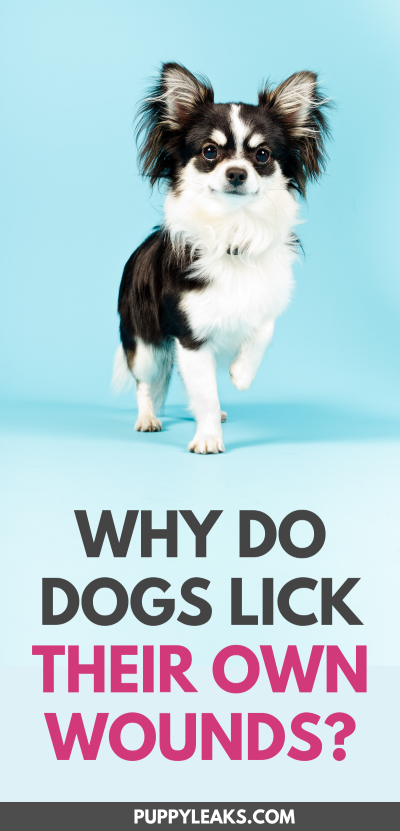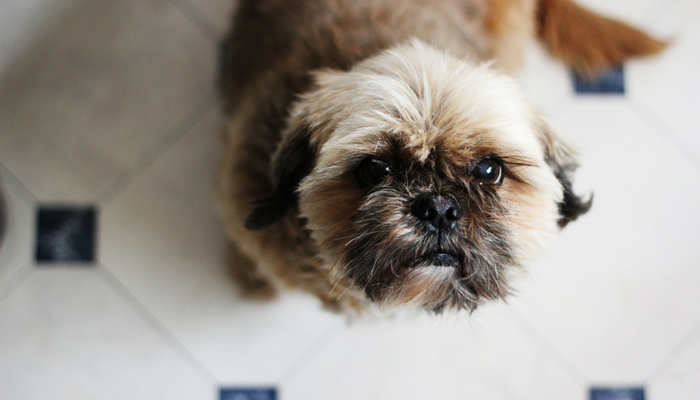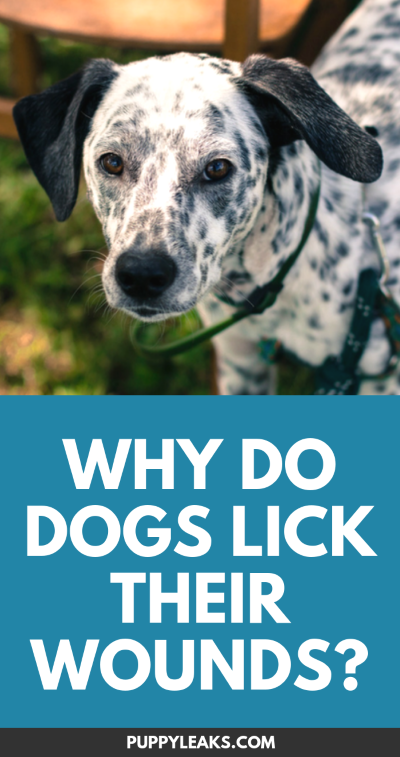[ad_1]
As canine lovers we all know one factor — canines like to lick the whole lot. However relating to wounds there appears to be a little bit of confusion. Is letting your canine lick their wounds useful, or does it trigger extra hurt than good?
Whereas it’s true that there are just a few potential advantages to wound licking, it’s vital to understand that the dangers outweigh the advantages, particularly for those who’re speaking about a big wound.
On this article we’ll take a look at why canines lick their wounds, the dangers related to wound licking, and how you can forestall your canine from licking their wounds.
Why Do Canines Lick Their Wounds?
Why do canines lick their wounds? Briefly canines lick their wounds as a result of it could actually promote therapeutic and relieve ache. And though licking might help the therapeutic course of in some wounds it could actually additionally trigger extra hurt than good (extra on that under).
Wound licking is an instinctive response in canines, and it’s one which’s discovered in lots of different animals similar to cats, primates and rodents. Their mouth is the one instrument they’ve at their disposal to attempt to clear up wounds. They will’t go to the drugs cupboard and seize some disinfectant, in order that they use the one factor they’ve bought — their mouth. It’s the one manner they know how you can assist themselves heal.
Why licking? Properly, saliva comprises some useful supplies that may assist promote therapeutic. It comprises a protein referred to as tissue issue (additionally referred to as platelet tissue issue) that may assist promote blood clotting. Canine saliva additionally comprises Opiorphin (an endogenous chemical compound), which acts as a painkiller.
The Historical past Behind Wound Licking
The assumption that wound licking can have some healing results has been round for ages, and previously we utilized canines to assist heal a few of our personal wounds.
The assumption that canine saliva might help heal wounds goes all the best way again to historic Egyptian occasions. The Egyptians believed that being licked by a canine, particularly on an open wound, helped assist in restoration and remedy diseases.
In historic Greece, canines on the shrine of Aesculapius (a hero and god of drugs) had been educated to lick sufferers. And in Armenian tradition Aralezes (dog-like creatures or spirits) descended from the sky to lick the injuries of the fallen so they may resurrect.
We don’t use these strategies anymore due to trendy drugs, however our canines nonetheless do. And whereas licking minor wounds might not trigger a lot of an issue on your canine the massive ones can.
The Risks Of Letting Your Canine Lick Their Wounds
Though wound licking has just a few potential advantages there are some main dangers concerned. Wound licking can decelerate the therapeutic course of, and in some instances it could actually make issues a lot worse by inflicting infections.
Canines have billions of micro organism inside their mouth, and plenty of of them have the potential to trigger infections. Micro organism that’s innocent inside your canine’s mouth similar to Pasteurella could cause severe infections if launched right into a wound.
The friction attributable to licking may also reopen outdated wounds by breaking down tissue. That may depart them inclined to an infection and particles, and decelerate the therapeutic course of altogether.
Surgical procedure websites are particularly harmful relating to licking, since it could actually break down sutures and reopen the wound. Incisions will be itchy and aggravating, and plenty of canines will reply by licking or chewing on the affected space. And since surgical procedure wounds are sometimes massive and deep the possibilities of an infection are fairly excessive in case your canine is allowed to lick the realm.
Learn how to Forestall Your Canine From Licking Their Wounds
With regards to stopping your canine from licking their wounds you need to use an E-collar, a bandage, a t-shirt, or distraction strategies within the case of minor wounds.
In case your canine has had surgical procedure your veterinarian in all probability already despatched you dwelling with an E-collar and directions on how lengthy to maintain it on for. Though nobody enjoys the cone of disgrace it’s vital to keep in mind that in the long term it’s for their very own good. They’re designed to forestall your canine from licking their wounds, and to forestall them from inadvertently slowing down the therapeutic course of.
In some smaller wounds you need to use a bandage to forestall your canine from licking the realm, but it surely’s vital to remember some canines will take away their bandage and get again to licking the second you’re not trying.
Should you’re involved about any wounds in your canine seek the advice of together with your veterinarian. They’ll be capable to entry your canine’s damage, provide you with therapy choices if relevant, and allow you to know which technique is suitable for stopping wound licking.
And for those who’re not a fan of E-collars (I don’t suppose anybody is) ask your veterinarian if any of the options could be appropriate. Relying on the place your canine’s wound is they are able to advocate an alternative choice to an E-collar that’s not fairly as intrusive.
Should you’re coping with a minor wound you might be able to get away with utilizing distraction strategies similar to mind video games or meals puzzles to hold your canine busy. Simply bear in mind to control your canine after they’re not actively engaged with one thing, since they may go proper again to licking their wound.
Conclusion
Why do canines lick their wounds? As a result of it could actually assist promote therapeutic and relive ache. And though canine saliva might have some therapeutic properties relating to wound licking the dangers outweigh the advantages. Wound licking can truly decelerate the therapeutic course of, and in some cases it could actually trigger severe infections.
In case your canine has a brand new wound that you just’re involved about, or one which gained’t heal please seek the advice of your veterinarian. There’s loads of therapy choices out there, and so they’ll be capable to give you the therapy that’s proper on your canine.

Please share with your pals
[ad_2]
Supply hyperlink

